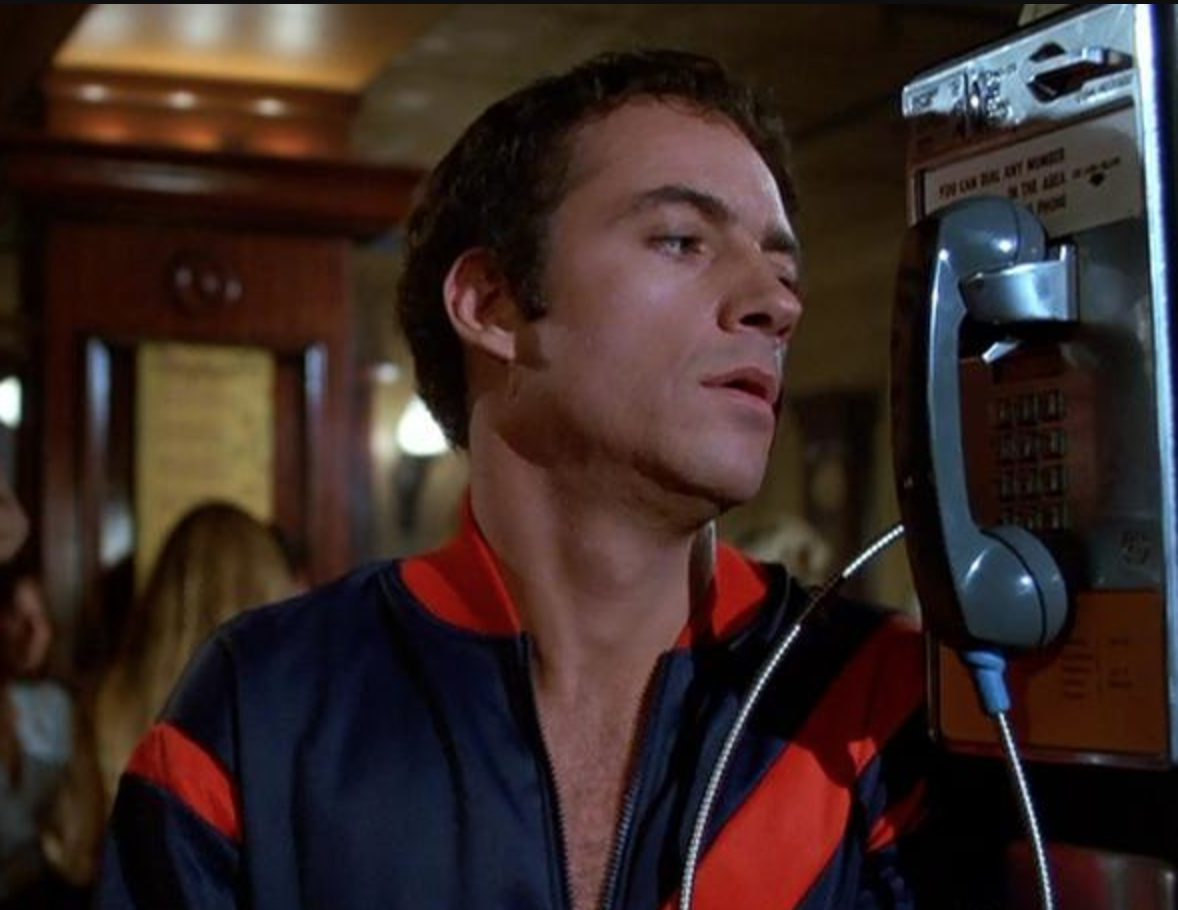Like many other critics and journos, I live each day in mortal fear of the New Stalinists. Which is why I asked some pallies what they thought about my posting a fairly inconsequential piece about James Toback‘s Love and Money (’82), which I watched the night before last.
Message: “I wrote a mild little piece about Love and Money, but I’m not sure I have the backbone to post it, mainly because agents of the wokester Khmer Rouge may conclude that I’m a Toback apologist, which I’m certainly not as far as reports of his personal behavior are concerned. The piece is hardly incendiary, but do you agree that ‘they’ might come after me if I posted it?”
Here it is: The career of director-writer James Toback was terminated roughly two and one third years ago. Stories about Toback having allegedly sexually harassed over 300 women saw to that. This behavioral pattern went on for decades, to go by an L.A. Times article (1.7.18) by Glenn Whipp.
It follows that no Toback-directed films (including the brilliant Fingers and the provocative Two Girls and a Guy and Black and White) are allowed to be even mentioned, much less discussed; ditto Toback’s screenplays for Karel Reisz‘s The Gambler and Barry Levinson and Warren Beatty‘s Oscar-nominated Bugsy, which were once highly regarded.
I’m nonetheless scratching my head about Love and Money, an oddly disjointed film that’s viewable on Amazon. Directed and written by Toback and a complete financial bust when it opened in early ’82, it was generally regarded as a sloppy, spazzy thing.
But you have to wonder what Love and Money was in script form for Warren Beatty and Pauline Kael, no slouches in their respective fields, to have invested their attention during the late ’70s development process. It must have amounted to something unusual or interesting — there had to have been something there.
Wiki summary: “Beatty was interested in producing and starring at one point in the late ’70s, for Paramount. Beatty persuaded Kael to work on the project. Kael was an admirer of Toback’s and Beatty’s and had recently left film criticism to work in Hollywood. However, Kael dropped out of the project after a number of weeks, instead becoming a consultant for Paramount. (She would eventually return to film criticism.)
“Beatty dropped out of the film to concentrate on Reds. Toback and Paramount could not agree on casting without Beatty’s involvement. The project was put into turnaround. Toback set up the film at Lorimar. Filming started in November 1979. It finally opened on 2.12.82. It made a grand total of $14K.”
From Vincent Canby’s N.Y. Times review: “Love & Money is a very strange film. Although it is packed with plot, it seems sort of skimpy, so skimpy that one suspects that somebody — either Mr. Toback or someone not so fond of Mr. Toback’s overheated mannerisms — had ruthlessly chopped the print that’s now going into release.
“I wasn’t much fond of Fingers, Mr. Toback’s first film as a writer-director, but that film at least had its own roaring, cockeyed intensity, whether you liked it or not. Love and Money, as it stands here, looks as if the director had filmed a treatment rather than a screenplay. Instead of being intense, it just seems to have periodic fits.
“Love & Money [is punctuated with banalities] intercut with wildly unpredictable moments that too often are unintentionally funny because there are no buildups and nothing to connect them. The film eventually does get to Costa Salva, a [fictional] Central America country which looks a lot like a Los Angeles suburb, where the plot becomes even dimmer and where the production money seems to have run out. When we attend a rally addressed by Costa Salva’s dictator (Armand Assante), it looks like Arbor Day in Peoria.”
Thoughtful pally reaction: “I don’t really see how you’re being a Toback apologist here, in that you hardly have anything positive to say about him at all, except that he was so persuasive that he and Beatty actually got Kael out of NY, away from criticism and into a Hollywood job, where she then could get nothing done. (I’ve always wondered how much they were paying her — it was obviously an offer she couldn’t refuse). At the same time it’s hard to see the point of the post at all, as the majority of it are quotes from Wiki and Canby.
“If you felt like it, you could do a sort of career assessment: How the French (Francois Truffaut loved Fingers), Pauline and others went cuckoo for Toback at first, but then his undisciplined and wayward ways got the better of him before he crashed and burned from his own, always evident excesses.
“As we know, he’s always been a great schmoozer and provocative thinker. I always think of him in terms of the great final shot of The Bad and the Beautiful, as Kirk Douglas‘ cohorts, who have had enough of his nasty, duplicitous ways, still can’t help but lean in and listen to him as he’s about to pitch a new idea over the phone, simply because he’s a fascinating, seductive guy.
“Right now Toback is so toxic that no one even wants to hear his name or think about him. Allegedly he’s at home working on his memoirs. Maybe only when he’s gone will there be a proper reckoning for this incredibly wayward, undisciplined but indisputably voracious and provocative thinker and manipulator.”

